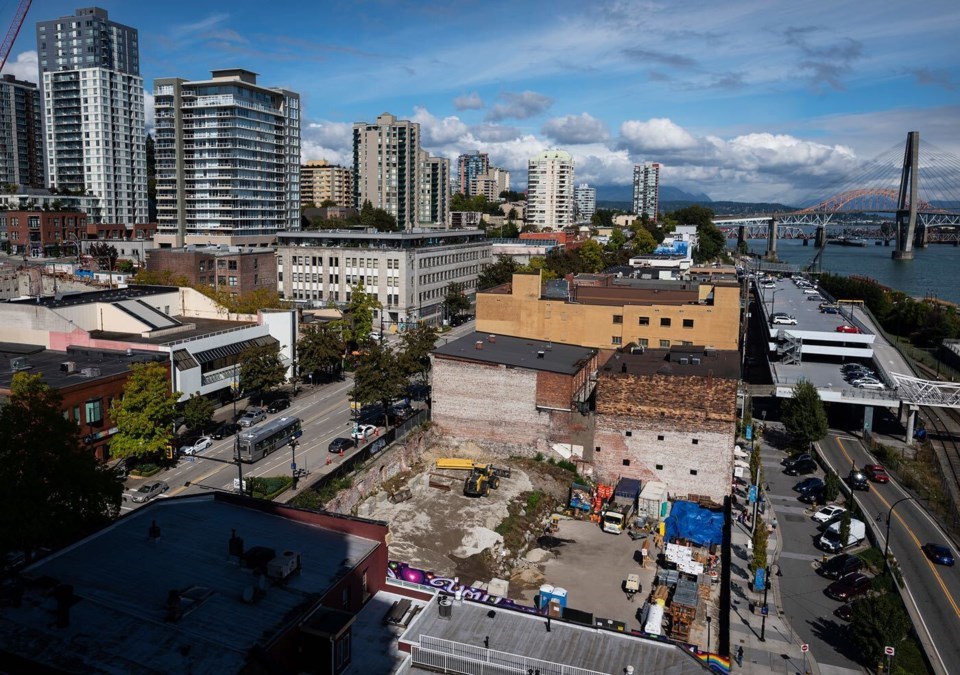A series of recent contributions to The Record have talked about the place of hope in politics: “New West must fix ‘rapidly deteriorating situation’ downtown” (Nov. 1, 2021); “Council isn’t using ‘vague strategies’ to support Downtown New West” (Nov. 3, 2021); and “Hope won’t revitalize our ‘ailing’ New West downtown” (Nov. 8, 2021).
The ostensible subject of this exchange centers on the revitalization of the downtown core amidst the challenges of the ongoing public health emergency in opioid-related overdose deaths and the growth of housing insecurity and homelessness in our city. Underlying this exchange, though, is a discussion about the nature of hope.
In the midst of these challenges and others, including grappling with the continued pandemic and the effects of climate change, it can seem hard to hold onto hope. But it is worth thinking about the role that hope plays in shaping our responses to the various challenges and crises that surround us in New Westminster.
I have learnt the most about the political dimensions of hope from the philosopher Cornel West. In his book Democracy Matters, West identifies hope as an important moral foundation for democratic communities. For West, hope is both a virtue and a verb that involves engaging in the struggle to make the world something more beautiful and better for all.
A virtue is a character trait that is of benefit both to the individual and to the community around them. The virtue of hope is to have our minds and hearts enlivened by the pursuit of things that are good but difficult to obtain.
Ensuring that everyone has access to safe, affordable, and adequate housing is a worthy goal to pursue, even if the challenge of realizing this goal is formidable. Indeed, I have been inspired by those in our community who work in a spirit of hope to support those in need, including those without adequate housing, often in selfless and unrecognized ways.
There are two ways, though, that we can fall short of the virtue of genuine hope: the first is the vice of despair, where we give up seeking something good in the midst of challenges; the second is the vice of presumption, where we assume that the goods that we seek are easy to obtain with minimal effort. The problem with both these vices is that they lead us to withdraw from doing the hard work necessary to overcome the challenges facing our community.
The vice of despair leads to a cynicism that merely identifies problems without working to solve those problems. At a broader level, West thinks that this cynical despair can ultimately yield a kind of nihilistic indifference that tolerates systems where those with power exploit others for their own advantage and where immiseration is pervasive.
By contrast, the vice of presumption leads to an unfounded optimism that problems will be solved without committed and sustained effort in the midst of obstacles and adversities. Indeed, West is careful in saying that he is not optimistic but that he is hopeful in his politics.
Hope overcomes both these vices through actions that make our community a better, more beautiful, and more just place for everyone. It is through hope that we act with integrity and solidarity to respond to the suffering of those around us. It is through hope that we recognize that no genuine revitalization of any area of our city can take place unless everyone has access to adequate housing and necessary support services.
We can and should transcend simple partisan antagonisms to engage in real dialogue that involves proposing, weighing, and seeking to implement sensible strategies to deal with the problems before us. The virtue of hope moves us beyond mere criticism or indifference toward a genuine engagement with each other and the challenges we face.
The recent contributions to The Record all agree that hope itself is not a strategy for revitalizing our downtown or solving any number of the problems in our midst. It is true that the content of strategies should be formed by the input of those with relevant expertise and the deliberation of community members. But without hope there can be no meaningful vision of our common life together: indeed, it is hope that enlivens our imagination to the good things that are possible when we work together for the common good of our community.
Elliot Rossiter is a resident of New Westminster and faculty member at Douglas College.



